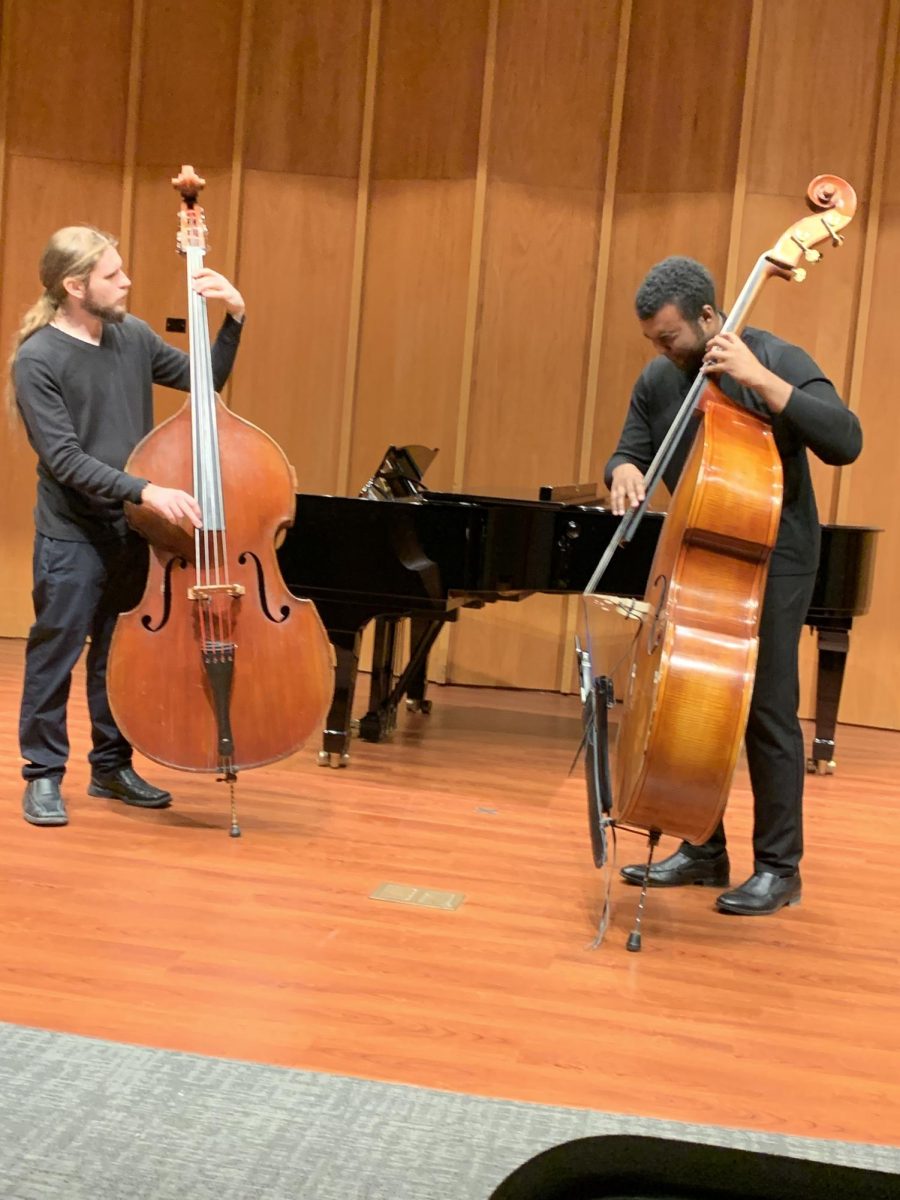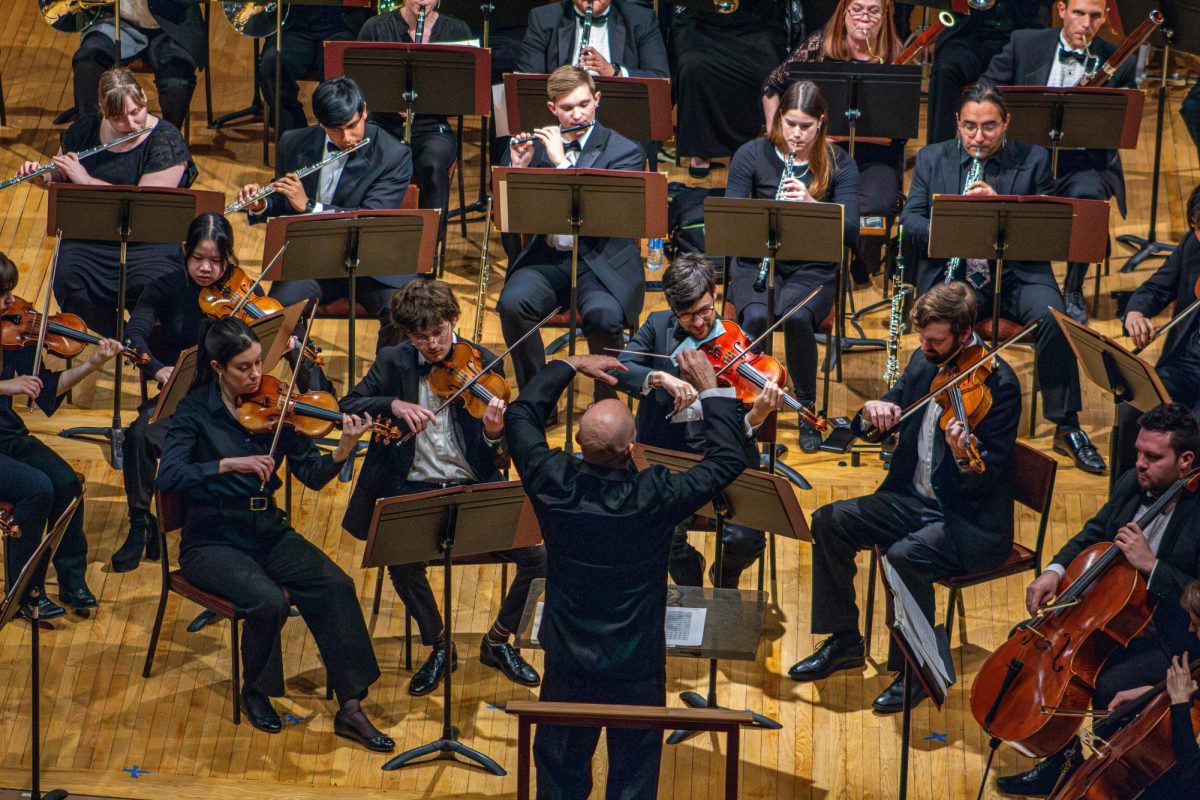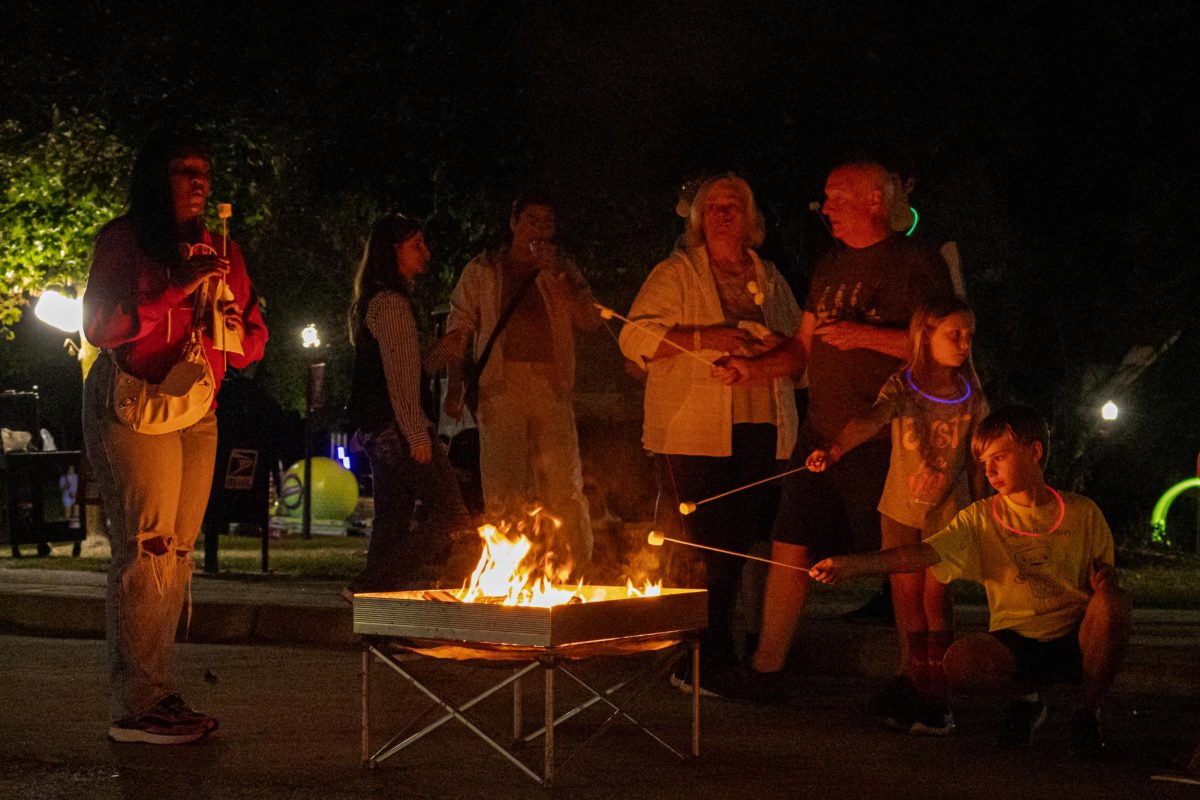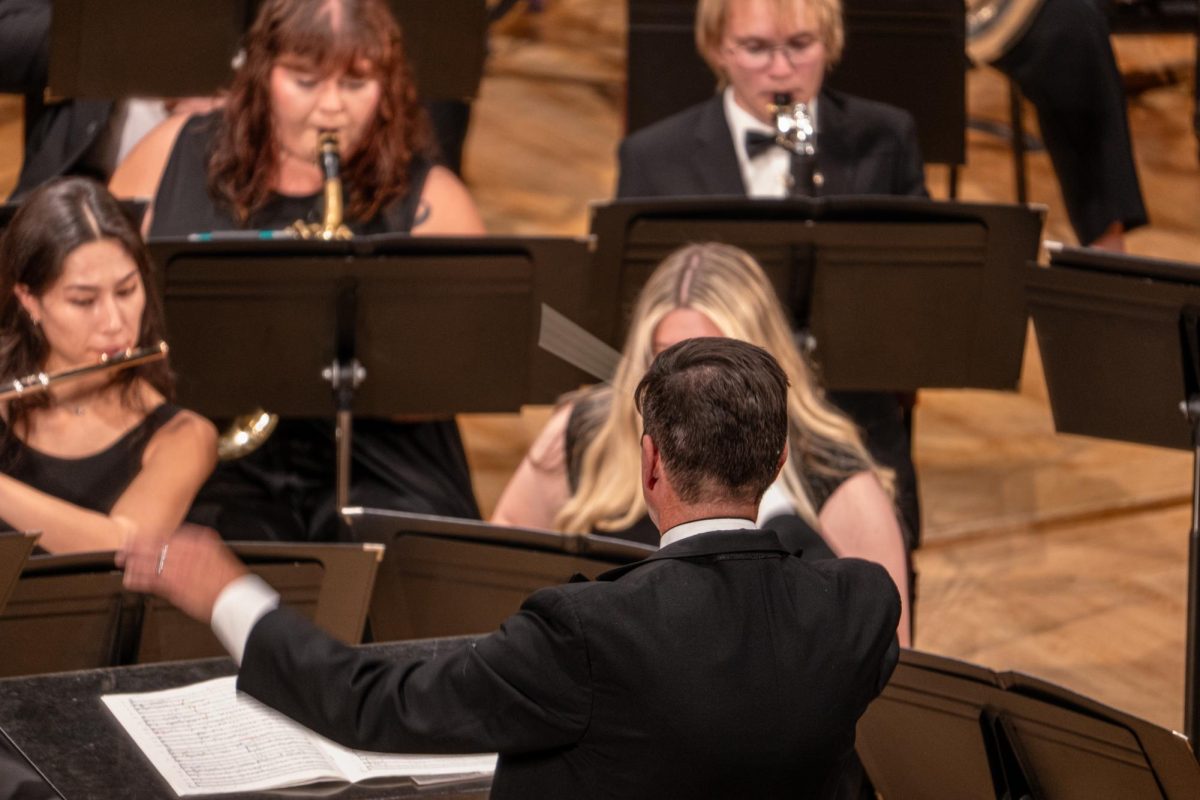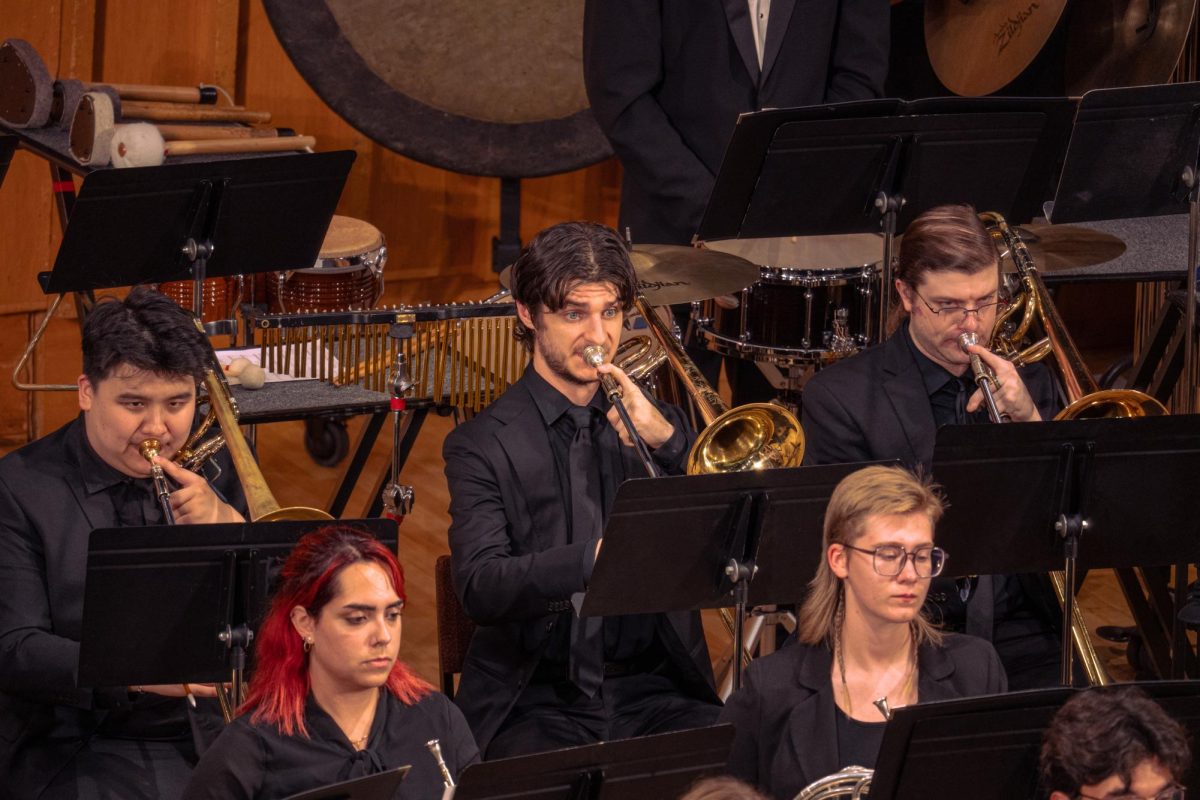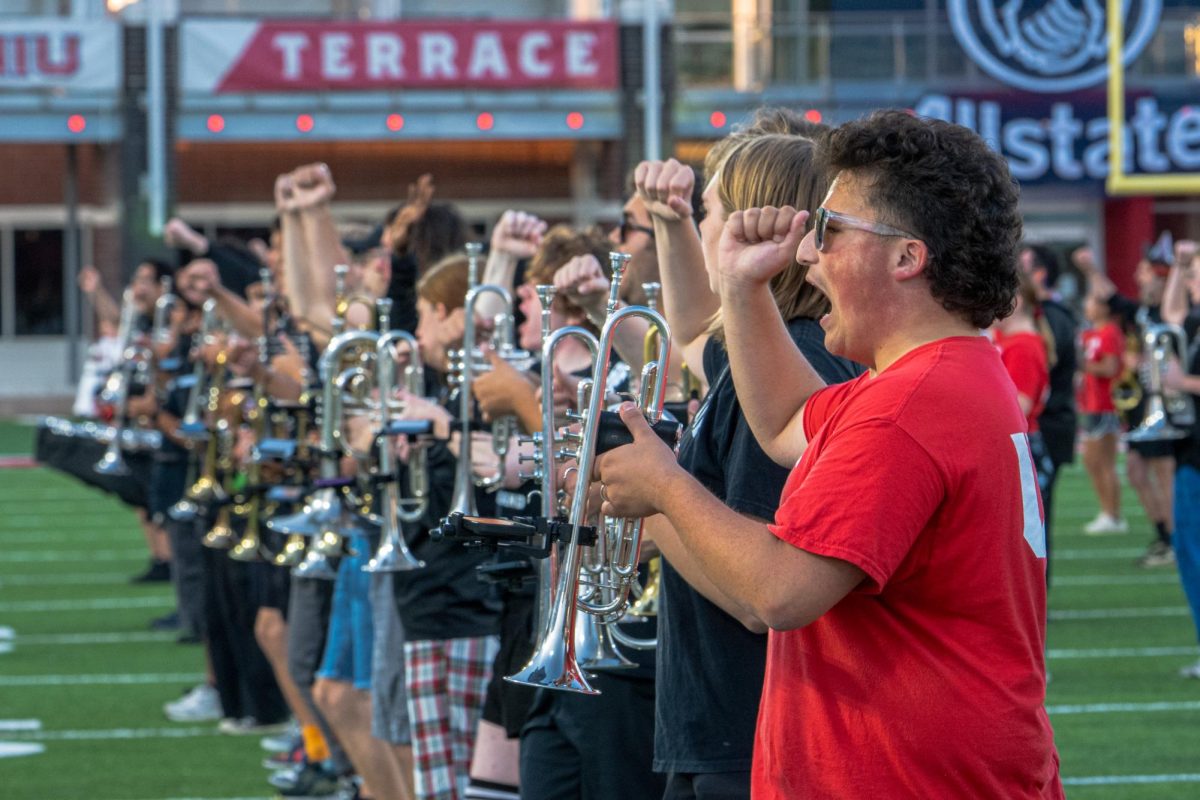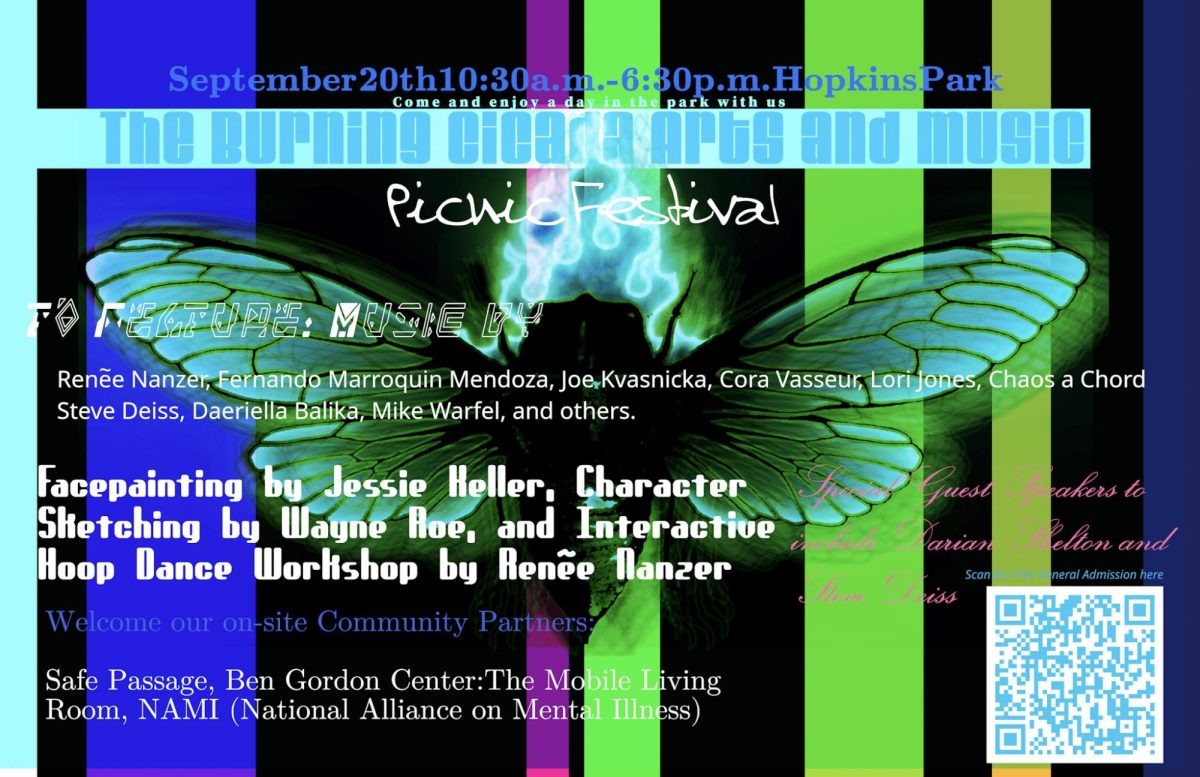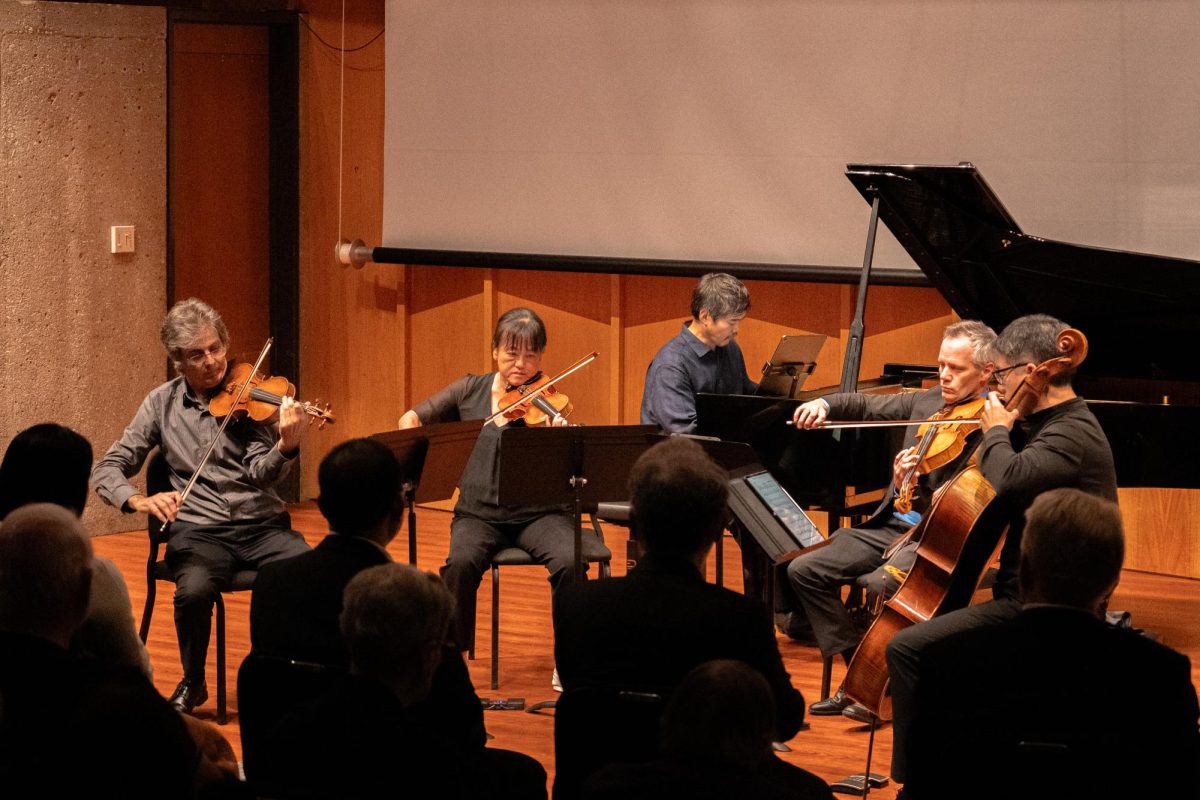Music can come from any era and belong to any genre. People want to be moved by music and NIU’s School of Music showed that it can be done.
Held at 7 p.m. Tuesday in the Music Building’s Recital Hall, eight pieces of music were performed in front of a medium sized crowd for the Symposium Concert. Most of the pieces were classical with some written by famous composers like Johann Sebastian Bach and Pyotr Ilyich Tchaikovsky, while two others had a jazz-like quality.
The symposium had no conductor leading the students. Rather, each student or group of students followed with their sheet music. The students in the lineup included the Dakiti Quartet, a group of graduate students that consist of two violinists, one violist and one cellist. They performed “String Quartet No.1 Kreutzer Sonata” by Leos Janacek and “String Quartet No.1 in D Major Op.11” by Tchaikovsky.
Sofia Vrettou, a graduate student majoring in music performance and a member of the Dakiti Quartet, preferred playing Tchaikovsky as opposed to Janáček and his psychologically strange music, even though both pieces were difficult to perfect.
“I prefer Tchaikovsky because it describes someone who’s in love,” Vrettou said. “It took us months to learn and we still make progress on it every day.”
“Kreutzer Sonata” is described as a love affair between a violinist and a pianist’s wife. Tchaikovsky was more romantic, due in part to his previous works such as “Swan Lake,” “The Nutcracker” and “The Four Seasons.”
Another sonata, performed by Breanna Negele on the flute and instructor Scott Metlicka on piano, had nothing to do with a love affair. “Sonata for Flute and Piano” by Francis Poulenc sounds airy with a hint of fantasy. It had a fast tempo and notes alternated between E major and E minor near the end.
“Wild is the Wind” was composed by Dmitri Tiomkin, but had inspiration from Shirley Horn’s “Come a little closer/Wild is the Wind.” The drums in the piece helped greatly as the cymbals mimicked the wind and at one point, the drums, piano and cello all joined together in a thunderous sound.
Marcus Evans, a jazz studies graduate student, expressed his gratitude with playing with the two other students.
“I enjoyed playing ballads and also the rendition of Shirley Horn,” Evans said. “There was such a great lineup of music.”
Anthony Devroye, a music professor of the viola, was adamant the symposium impacted people.
“I value that there’s so much diverse music making,” Devroye said. “Students can get exposure to different kinds of styles.”
The next symposium will be on March 1 from 8 a.m. from 6 p.m. focusing on wind conducting.


